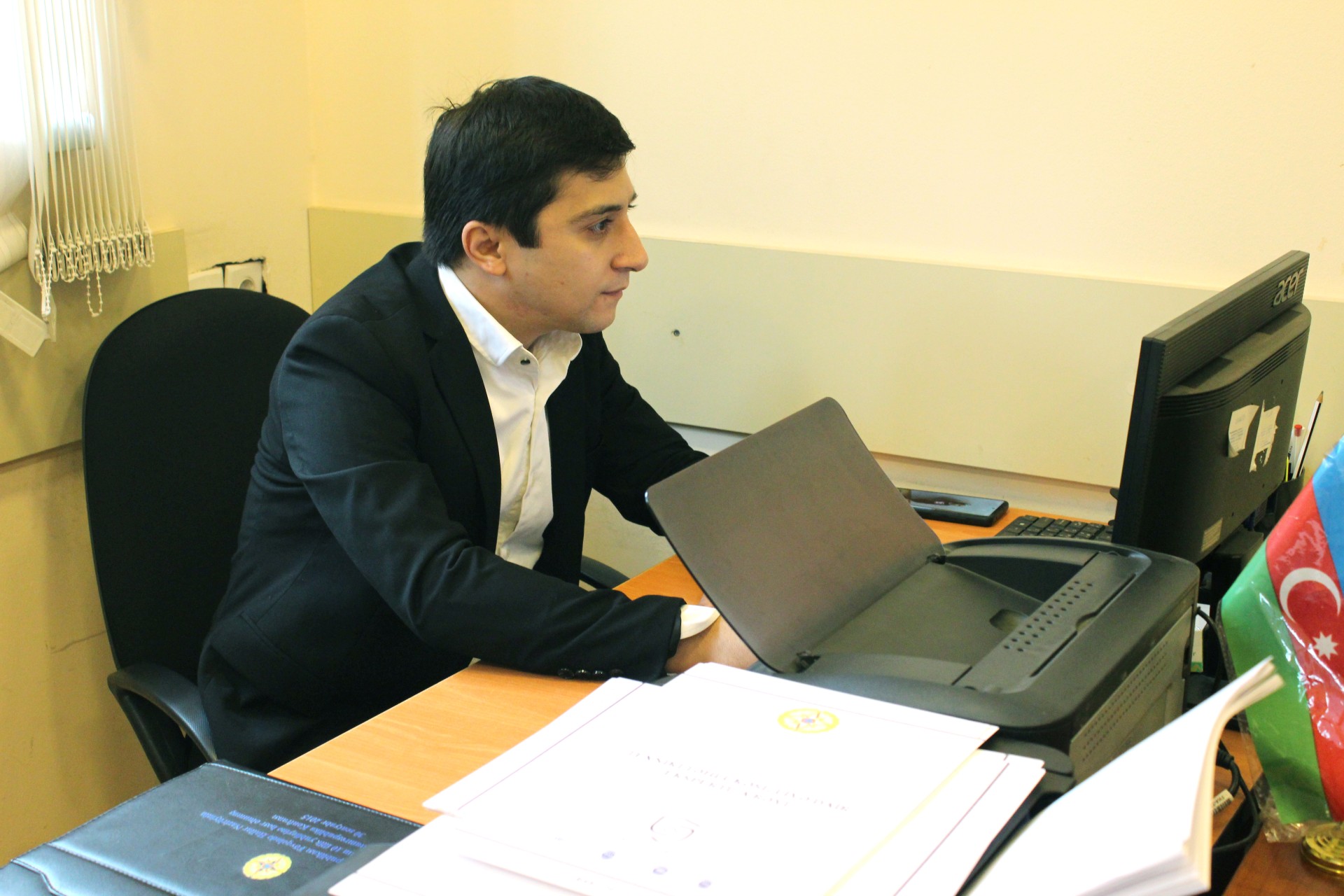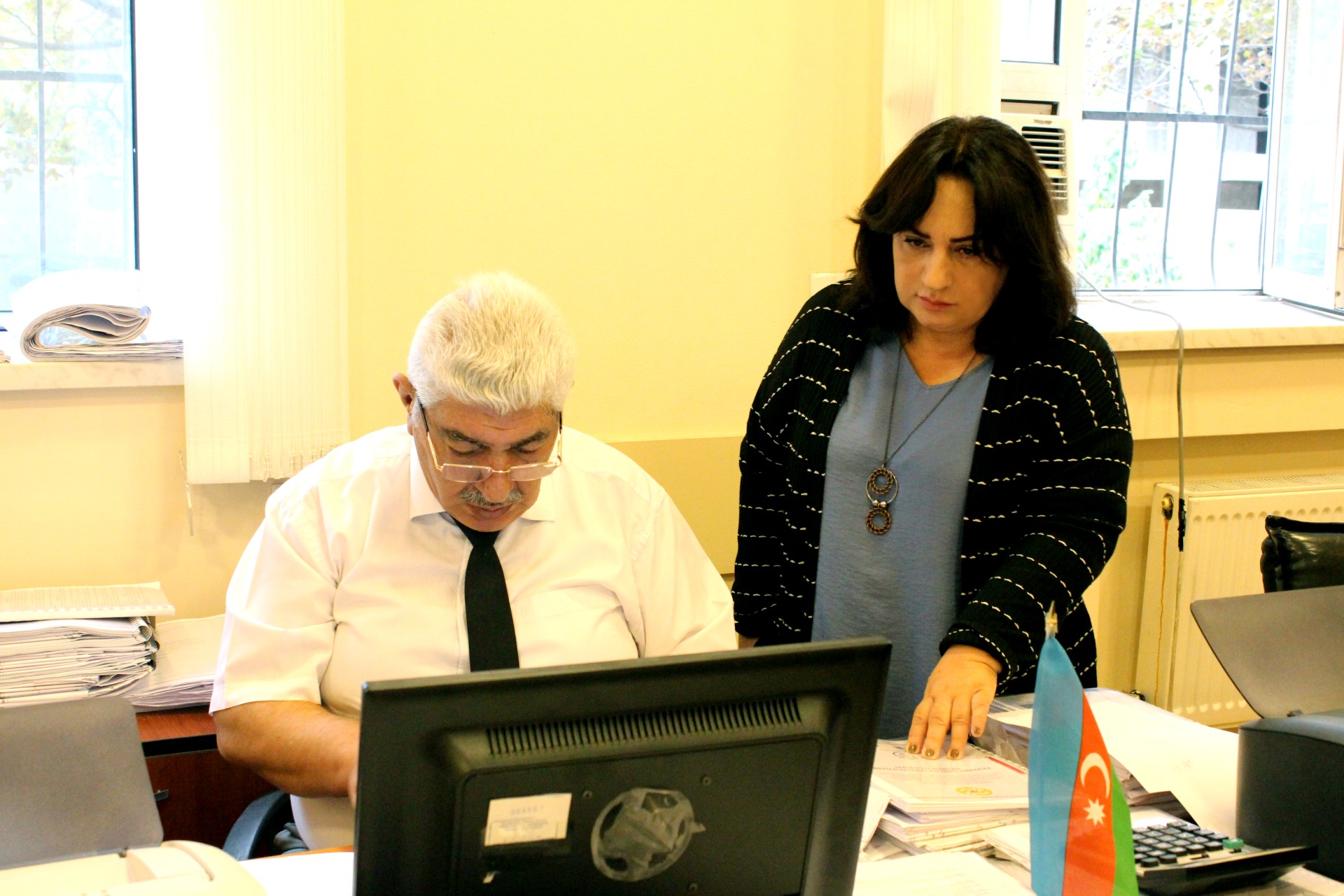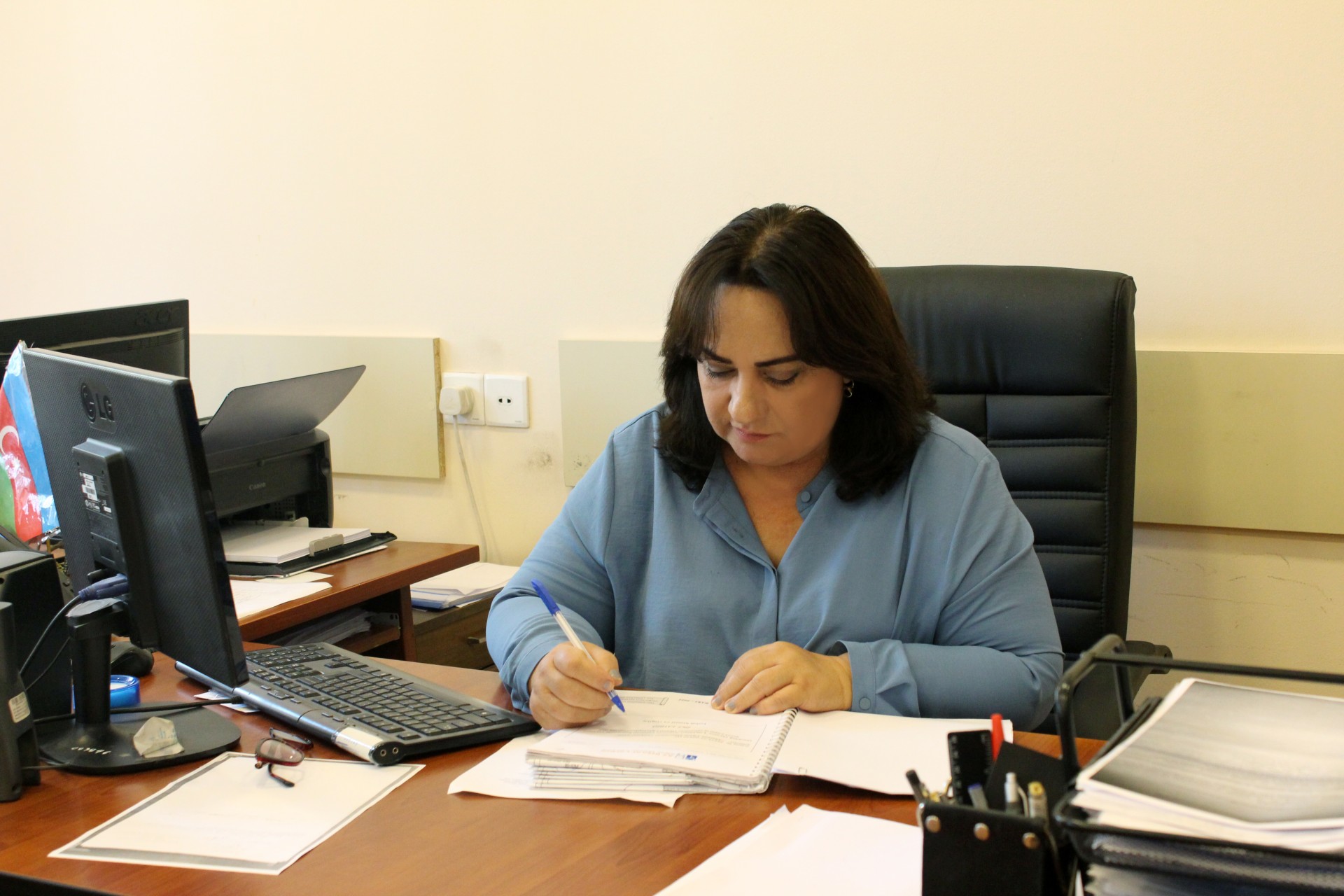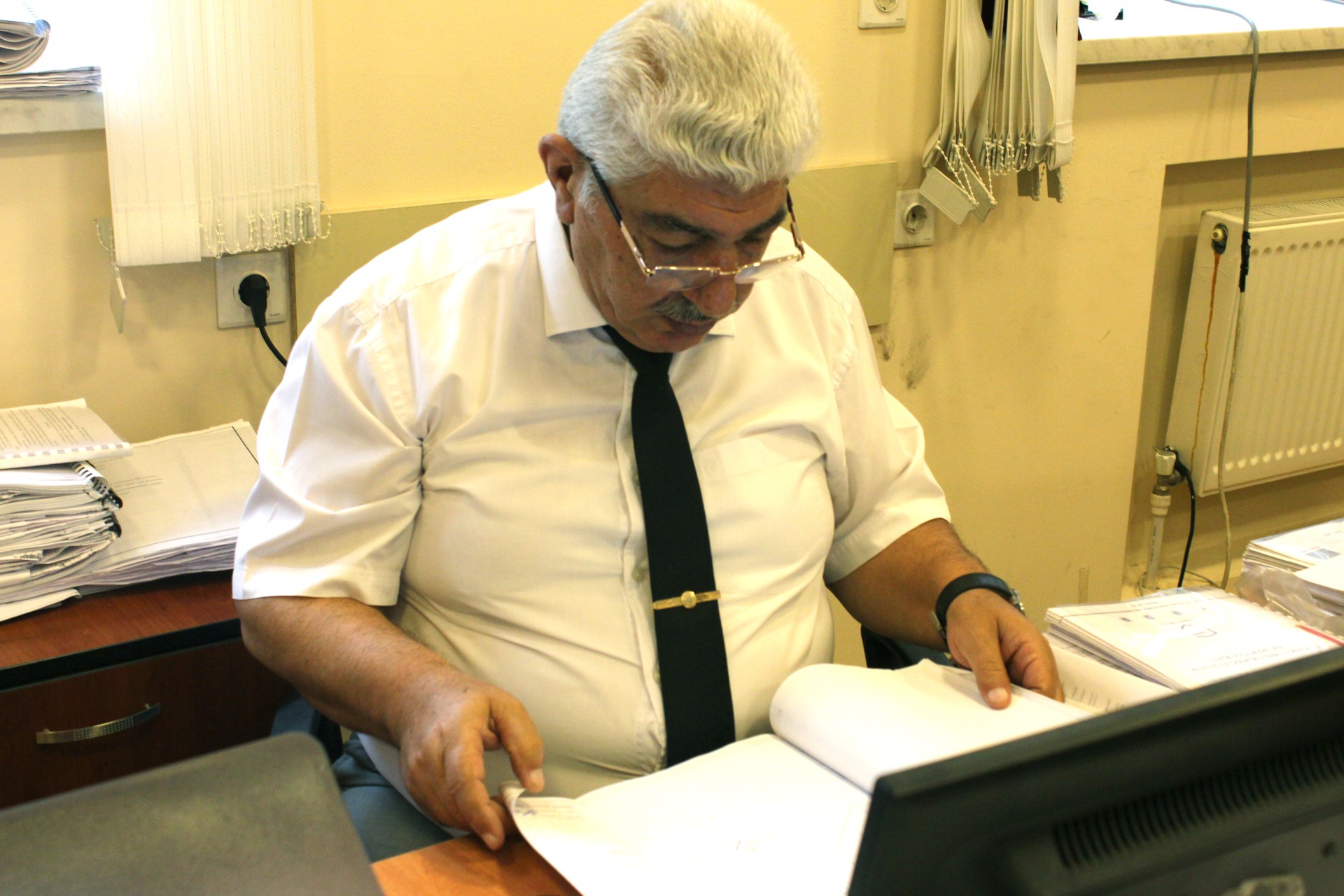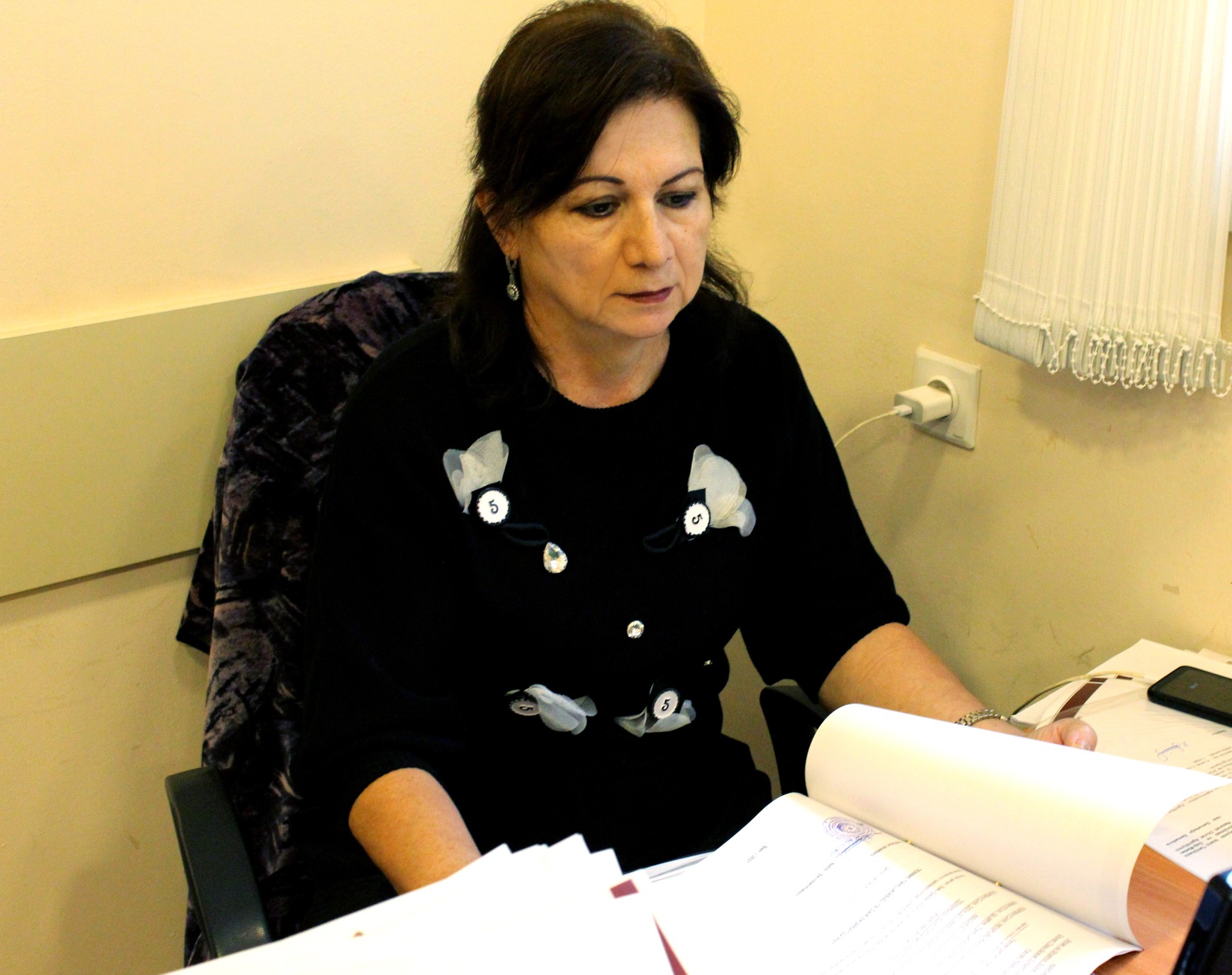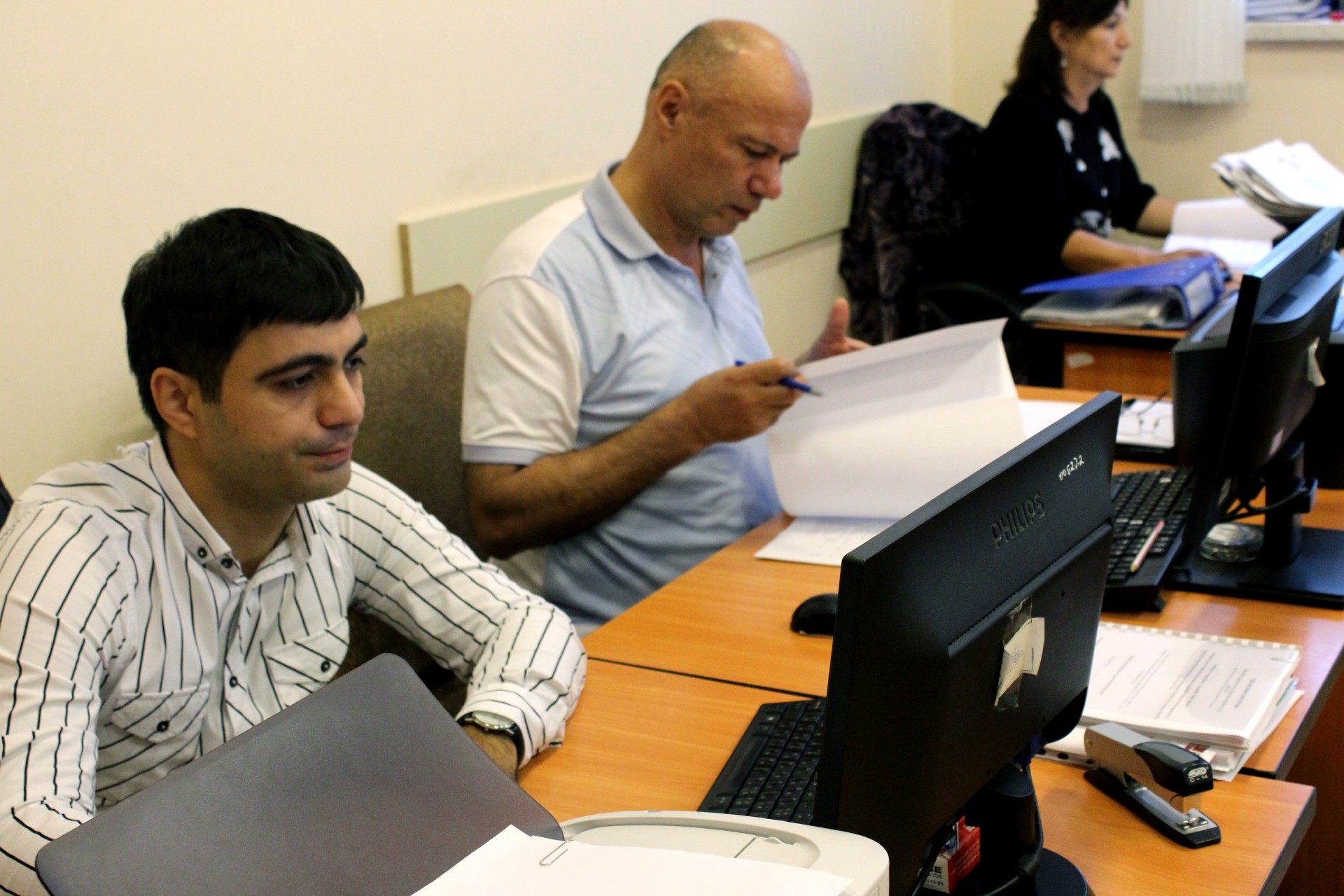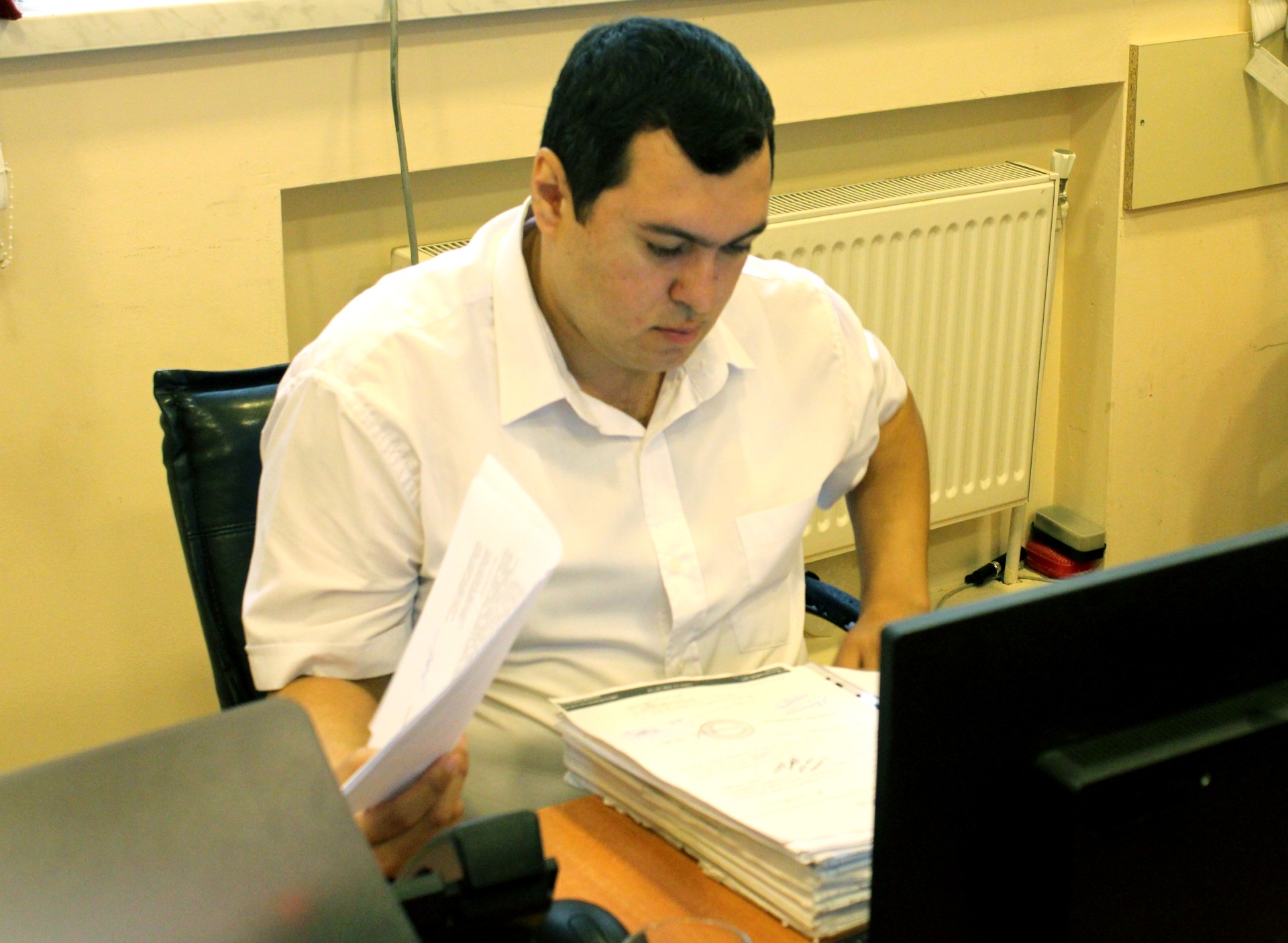- Services
- Flaw detection
- Technical assistance in processing technical safety declarations
- Technical inspection of technological and other mechanical vehicles
- Restoration of technical passports of equipment and operation manuals
- Electrical measurement works and installation of earthing devices
- Technical examination of vehicles that carry dangerous goods
- Technical security expertise
- Washing and degassing
- Testing at rigs
- Training
- Attestation of workplaces
- Preparation of technical normative documents
MEET ALMAZ RAHMANOVA: THE FIRST OF THE FIRSTS
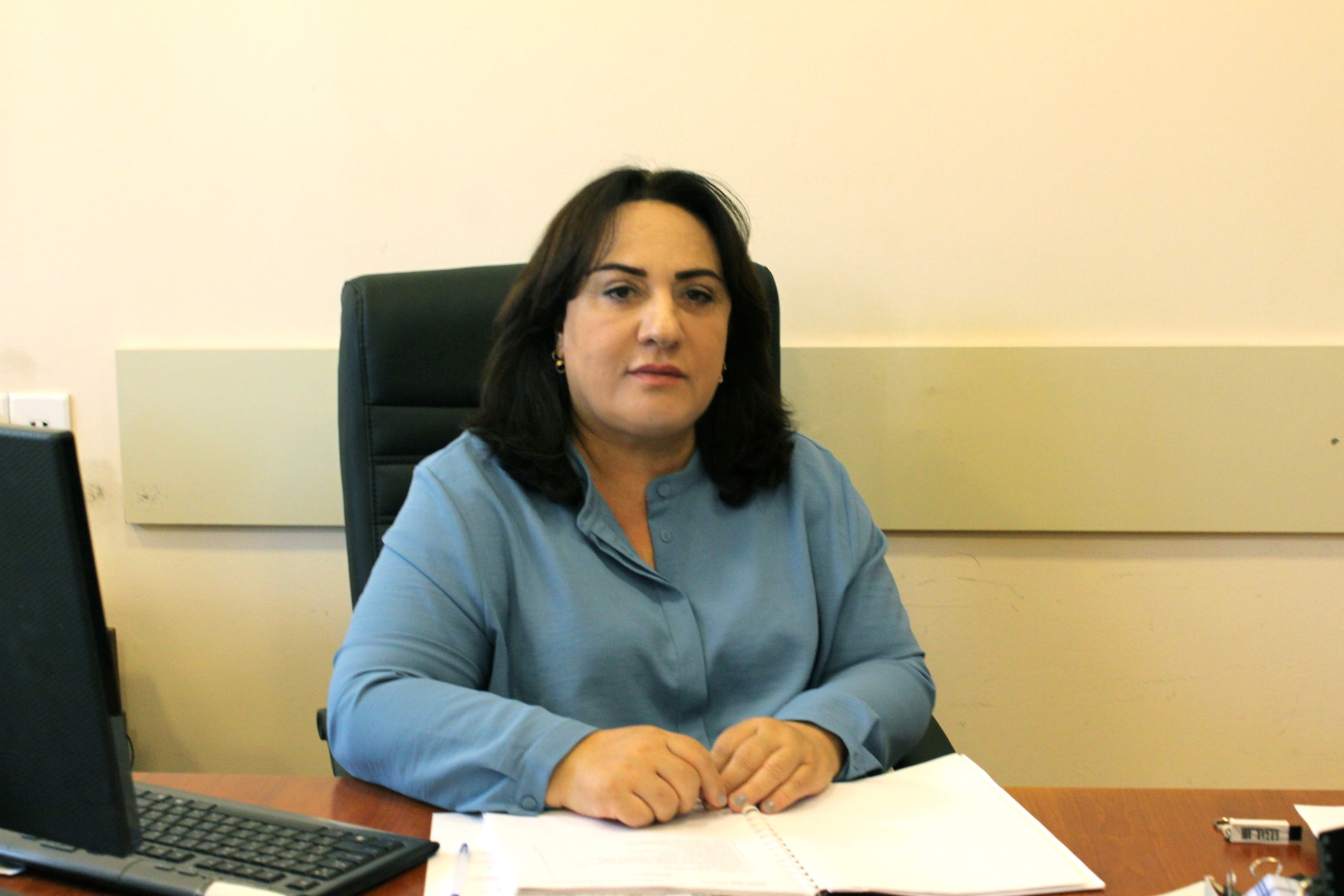
- You are probably the only woman at the institute to head such a difficult-profiled department as the Department for Safety at Explosive Gas and Pressure Equipment. How did you start your journey in such a complicated field?
‘I started my career at this Institute in 1996 first as a researcher, then as a senior researcher. I have graduated from the Azerbaijan State University named after Kirov, majoring in chemistry. I am a chemical engineer by trade.
I have always been a scientist since my years as a student. I worked as an engineer on the analysis of broad components of natural waters and the Geology Institute at Azerbaijan National Academy of Sciences and as a junior researcher at the Institute of Medical Rehabilitation.
I have been a senior researcher as of 2006 and department head since 2007 at the Department for Safety at Explosive Gas and Pressure Equipment at Azerbaijan State Scientific-Research Institute of Labour Protection and Safety Engineering under the State Agency for Safe Working in Industry and Mountain-Mining Control.
Of course, I have faced many challenges when I took up the position. As the Institute functions under the Ministry of Emergency Situations, we have undertaken many interesting projects. One of the major projects among these was to perform an expert examination and deliver feedback on working projects of natural and liquefied gas supply facilities (residential and non-residential) which are included in the main areas of our department. In addition, we have been continuing developing normative and technical documents which is one of the primary functions of our department. Our department has developed many such documents under my leadership. I can list the following as an example:
-
Computer based simulator for members of the rig building crew for learning safe work methods – 2008
-
Technical safety rules in the operation of main oil pipelines – 2010
-
Fire safety rules in oil, gas, and petrochemical industry – 2012
-
Main gas pipelines technical operation and technical safety rules – 2013
-
Regulations for installation and safe operation of pressure vessels – 2014
-
Instructions on coordinated and precise actions, management and organizational functions for immediate warning, cancellation of the accident and evacuation of staff for all types of accidents that may occur in oil and gas extraction (especially offshore) facilities – 2008.
I oversaw the organization of the ‘Technical security training course for managers and specialists at potentially hazardous objects’, which is another main function of the institute. Thousands of specialists, engineers, and people responsible for technical safety have completed the training course and received relevant certificates since 2007.
Since the launch of the Special Risk Rescue Service at the Ministry of Emergencies, I have contributed to the development and organization of a training course for the rescue team on labour protection in rescue work, the correct operation of devices and equipment and safe evacuation of people from the accident zone.
Moreover, I have supervised the development of other training courses in various dangerous fields overseen by the institute, such as the ‘Safety measures while transporting dangerous goods on motor vehicles’, ‘Skill improvement for surface mining managers’, ‘Safety measures in the operation of attraction facilities’, ‘Safety training for the employees of the Special Risk Rescue Service while working in water basins’, training for persons in charge of gas industry and boiler house operators on ‘Safety rules in gas industry’, and others. Guidance materials, tests and curriculums of all the above-mentioned training courses have been developed under my guidance.
I have also personally supervised the development of teaching materials for courses such as ‘Important aspects of organizing technical safety and labour protection in enterprises’, ‘Important aspects of labour protection and technical safety of the Special Risk Service staff’, and ‘Important aspects of technical safety of the Special Risk Rescue Service staff working in water basins’.’
- How many people do you have under your management? What kind of leader are you?
‘There are currently 6 people in the department. We manage operations in four directions. The first consists of daily expert evaluation on the working projects prepared for the gas supply of objects linked to gas on compliance with the requirements of the regulatory documents on technical safety and ultimately handing over the expert opinion approved by the management to the customer (natural or legal entity). Another comprises evaluating the technical execution papers for commissioning facilities with finalized gas linkage and delivering an expert opinion on the completeness of the documents. The third direction covers evaluation and expert opinion on the compliance of the fuel tanks operated at gas stations throughout the country with technical safety norms and standards before issuing a technical safety certificate for them.
The scope of activities of the department includes delivering technical assistance in compiling an expert opinion to expert organizations based on contracts between them and the institute. Even though our plate is always full, the department processes all the incoming applications on time. The specialists at our department perform their duties with utmost care and professionalism.’
- You have developed numerous normative documents in recent years, such as ‘Technical safety rules in main oil pipelines’ and ‘Single labour protection management system in Azerbaijan oil industry’. What are some of your main challenges?
‘The biggest challenge in developing regulatory and technical documents is the lack of experienced personnel. We are planning to launch several projects to overcome this obstacle soon.’
- Your department performs the expertise of gas projects on gas linkage at facilities operating throughout the country. Who and how can contact you on this matter? Could you tell us a bit more about the process with examples?
‘The Law of the Republic of Azerbaijan on Technical Safety requires all the potentially dangerous objects to go through expertise on compliance with the normative documents in force on technical safety at the construction and reconstruction stage. After a positive expert opinion, the working project is then registered. As all objects supplied with gas are considered potentially dangerous, the project designs for all such objects are submitted to the institute for expertise. Our experts then conduct the evaluation and put together an expert opinion. For example, we have given an expert opinion on hundreds of gas projects on gas linkage of villages and town throughout the country conducted by AzeriGas Production Union within the state program.’
- You have been delivering training courses in labour protection and safety from 2006 to 2014. Could you tell us a bit more on these courses? What stages of training do company employees go through? Who can participate? What document does the institute give at the end of the course?
‘As I mentioned above, I oversaw the training courses at the institute from 2006 to 2014. There were next to no education institutions or courses on technical safety and labour protection in the country from 20006 to 2010. As the State Agency for Safe Working in Industry and Mountain-Mining Control at the Ministry of Emergencies of the Republic of Azerbaijan performed the functions of monitoring technical safety in potentially dangerous enterprises and objects, we discovered a certain ineptitude on industrial safety and labour protection among experts, managers, and even technical safety engineers. This is the direct cause of accidents and injuries at workplaces. We all now that we can only achieve prevention of accidents and injuries in production when the entire staff complies with safety norms, standards, and regulations. In this regard, developing a course on technical safety and labour protection plays a big role in solving this important problem to a certain extent. I believe that partaking in our courses greatly helps the personnel of potentially dangerous facilities in bringing their knowledge on technical safety and labour protection to a satisfactory level. Trained specialists are provided with a certificate after passing an exam.
At the moment, the specialists at our department, the lead researcher Zalimkhan Aliyev and myself are participating in training courses on relevant subjects. These include ‘Evaluation and improvement of technical safety expertise among managers and specialists’, ‘Labour protection’, ‘Organization of work on labour protection in an enterprise’, ‘Fire-explosion safety’, ‘Gas safety’ and many others.’
- Which of these fields is closes to your heart? Which one would you like to study more?
‘My work engages in immediate safety of people. I feel a great responsibility on my shoulders and this obligation requires of me to be more precise and principled in what I do. People’s safety depends on our work. To answer your question, I would say that I am interested in all topics related to technical security.’
- What do you like most about your job?
‘I enjoy the accuracy required while evaluating security related issues and constant need to improve my own knowledge and skills on regulatory requirements.’

